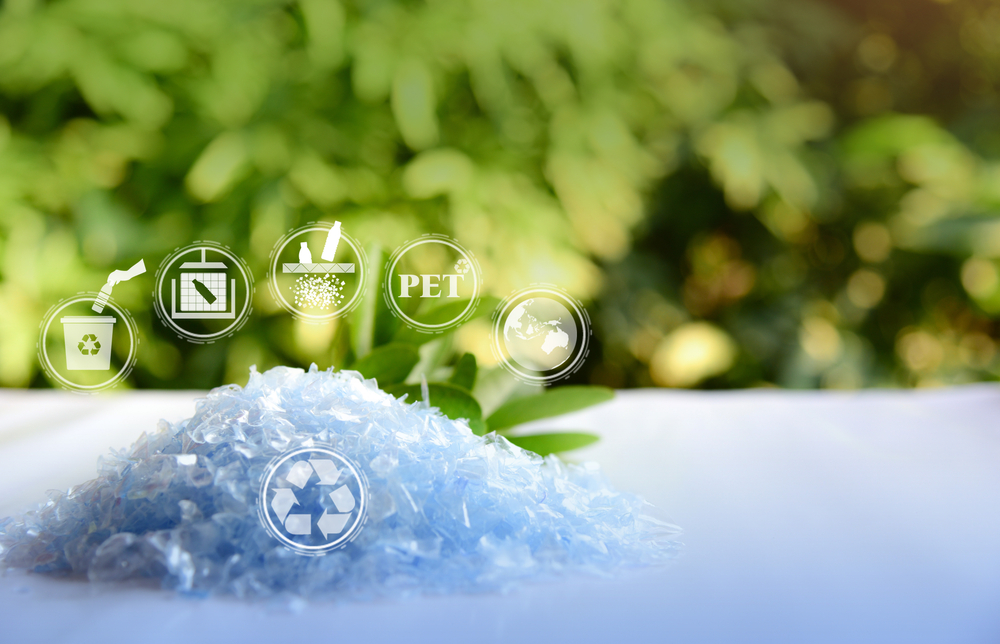Researchers at Northwestern University have developed innovative pet plastic recycling methods that are safer, more cost-effective and much more sustainable than traditional approaches.
By harnessing moisture from the air, this new process eliminates the need for toxic solvents and excess energy use, providing a promising solution to the global plastic waste crisis.
This breakthrough will help transform pet plastic recycling practices, establish a true circular economy for plastics, reduce reliance on virgin materials, and mitigate environmental pollution.
Yoshi Kratish of Northwestern, co-author of the study, explained:
“Most of the technology we have today is melting plastic bottles and downcycle them into low-quality products. What’s particularly exciting about our research is that we use moisture from the air to break down plastics, achieving a very clean and selective process.
Growing pet plastic waste crisis
Polyethylene terephthalate (PET) is one of the most commonly used plastics in the world found in drink bottles, food packaging and textiles.
Unfortunately, its durability means that pet waste will last in the environment for centuries and contribute to the global plastic pollution crisis.
Currently, pet plastic recycling relies on energy-intensive processes that include high temperatures, harsh solvents and expensive catalysts, creating toxic by-products and adding an environmental burden.
A simple yet powerful solution
The new PET recycling technology developed by Northwestern researchers is innovative and practical.
The process begins with an inexpensive, non-toxic molybdenum catalyst combined with activated carbon.
Adding PET plastic to this catalyst mixture and heating it breaks down the chemical bonds within the plastic.
Breakthrough occurs when broken pet debris is exposed to ambient air. Moisture in the air causes a chemical reaction that converts pets into monomers. This is a plastic essential building block.
This method eliminates the need for dangerous solvents, reduces energy consumption and prevents the generation of hazardous waste.
The only by-product, acetaldehyde, is a valuable industrial chemical that can be easily removed, making the process even more sustainable.
Fast, effective, scalable recycling
The efficiency of this pet plastic recycling process is noticeable. In just four hours, the researchers successfully recovered 94% of the possible monomers.
Furthermore, the catalysts used in the process are highly durable and can be reused multiple times without losing effectiveness.
Unlike traditional recycling methods, this technique selectively targets polyester, allowing the disposal of mixed plastic waste without the need for time-consuming sorting.
In actual testing, the process effectively split plastic, textiles and even colored plastic into pure, reusable materials.
This versatility offers a great economic advantage as it can be easily integrated into existing recycling facilities at minimal additional costs.
Naveen Malik, the first author of the study, added:
“Unlike traditional recycling methods that often produce harmful byproducts such as waste and require significant energy and chemical inputs, our approach uses a solvent-free process that relies on trace moisture from the surrounding air.
“This not only makes it environmentally friendly, but also very practical for real applications.”
The future of pet plastic recycling
The next step for researchers is to expand the process of industrial applications.
When implemented on a large scale, this innovative recycling method can revolutionize the industry and significantly reduce the environmental impact of plastic waste.
By eliminating the need for toxic chemicals and high energy processes, this breakthrough paves the way for a more sustainable future.
As global demand for plastics grows, such innovative solutions are important in tackling plastic pollution.
This new approach can make recycling your pet plastics more efficient, accessible and environmentally friendly.
Source link

